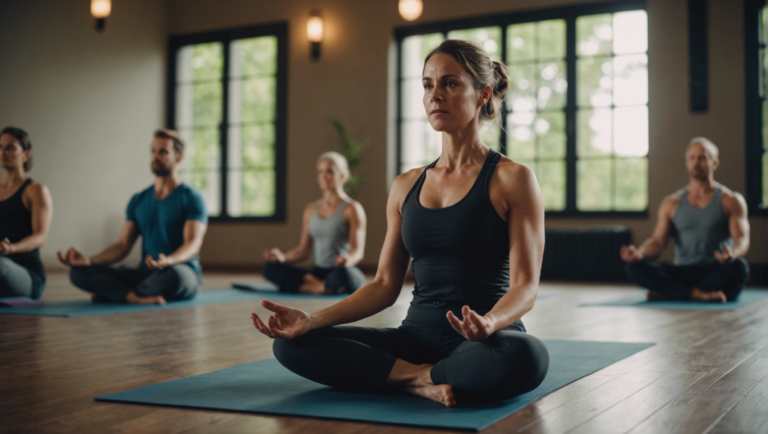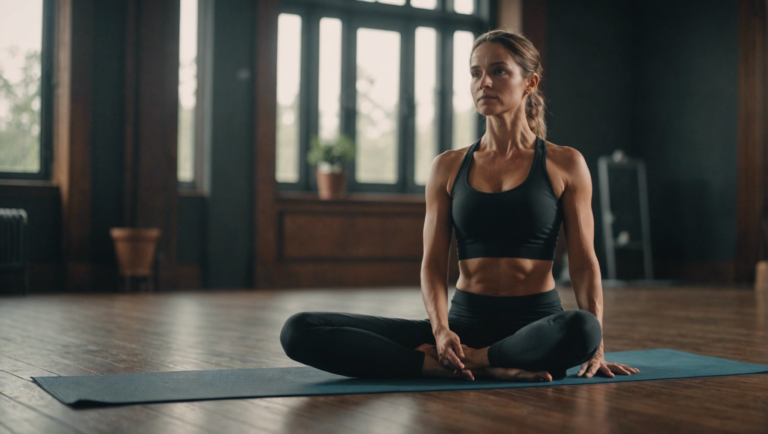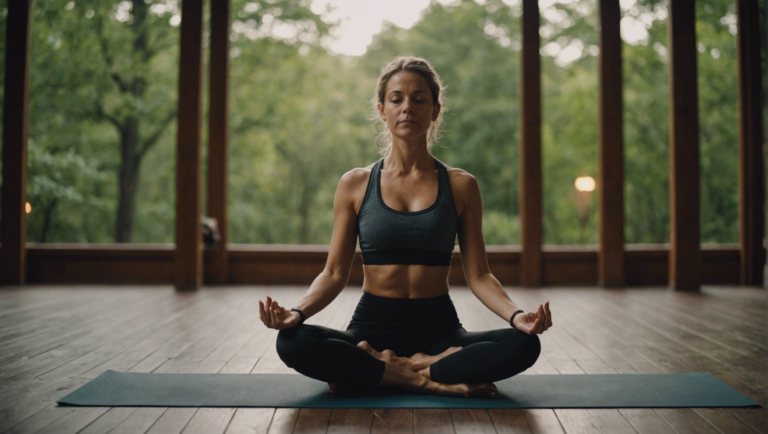Comprehensive Guidelines On How To Host A Successful Yoga Retreat
Key Elements to Consider When Planning a Yoga Retreat
Planning a yoga retreat requires careful consideration of various key elements to ensure a successful and fulfilling experience for both organizers and participants. By incorporating these essential components into your retreat planning process, you can create a memorable and transformative event that aligns with the goals and values of the yoga community.
Establishing the Retreat Purpose and Theme
Before diving into the logistical details of organizing a yoga retreat, it is crucial to establish a clear purpose and theme for the event. Define the intention behind the retreat, whether it is focused on relaxation, self-discovery, mindfulness, or a specific aspect of yoga practice. The theme will guide all aspects of the retreat, from choosing the venue to designing the schedule and activities.
Selecting the Ideal Retreat Location
Choosing the right location for your yoga retreat is paramount to its success. Consider serene and natural settings that promote a sense of peace and tranquility. Whether it’s a beachfront paradise, a mountain retreat, or a secluded forest hideaway, the venue should align with the theme of the retreat and provide a harmonious environment for practice and reflection.
Designing a Thoughtful Retreat Itinerary
Crafting a well-rounded and engaging itinerary is essential for keeping participants inspired and energized throughout the retreat. Balance yoga sessions, meditation practices, workshops, and free time for relaxation and exploration. Incorporate activities that cater to different levels of practitioners and offer a holistic experience that nurtures the body, mind, and spirit.
Partnering with Experienced Yoga Instructors
The quality of yoga instruction plays a significant role in the overall experience of a retreat. Collaborate with experienced and reputable yoga instructors who not only possess strong teaching skills but also embody the values of mindfulness and compassion. Their guidance and expertise will enrich the retreat program and leave a lasting impact on participants.
Providing Nutritious and Mindful Meals
Nutrition is a vital aspect of a holistic wellness retreat. Offer nourishing meals that support the practice of yoga and promote overall well-being. Consider dietary restrictions and preferences of participants, and ensure that the menu is balanced, wholesome, and thoughtfully prepared with fresh, locally sourced ingredients.
Cultivating a Sense of Community and Connection
Create opportunities for participants to connect with one another and build a sense of community during the retreat. Group activities, sharing circles, and communal meals can foster bonds and create a supportive environment for personal growth and transformation. Encourage open communication, inclusivity, and mutual respect among all attendees.
Ensuring Safety and Comfort for Participants
Prioritize the safety and comfort of retreat participants by addressing any potential concerns or risks in advance. Ensure that the venue is secure, emergency procedures are in place, and accommodation meets the needs of all attendees. Clear communication regarding rules, schedules, and expectations will help create a harmonious and stress-free environment for everyone involved.
By incorporating these key elements into your planning process, you can host a successful yoga retreat that offers a transformative and enriching experience for all participants. From setting a clear intention to curating a mindful itinerary and fostering a sense of community, each aspect contributes to creating a retreat that aligns with the values of yoga and holistic wellness.
Choosing the Ideal Location for Your Yoga Retreat
When planning a yoga retreat, choosing the right location is paramount to the success of your event. The setting can greatly impact the overall experience of your participants, affecting their level of relaxation, connection with nature, and immersion in the practice. Here are some comprehensive guidelines to help you select the ideal location for your yoga retreat.
Research Local Destinations and Venues
Begin your search by researching various destinations that align with your vision for the retreat. Consider factors such as the climate, scenery, and available amenities. Look for venues that offer peace and quiet, as well as access to natural surroundings like mountains, beaches, or forests. Ensure that the location provides a serene and tranquil environment conducive to yoga and meditation practices.
Consider Accessibility and Transportation
When choosing a location for your yoga retreat, accessibility is key. Ensure that the venue is easy to reach for your participants, whether they are traveling by car, plane, or other means of transportation. Consider the proximity to airports, bus stations, or major highways to make the journey convenient for everyone. Providing clear directions and transportation options will help participants feel at ease and ready to embrace the retreat experience.
Evaluate Accommodation and Facilities
The accommodation and facilities at the retreat location play a crucial role in the overall experience of your participants. Choose a venue that offers comfortable lodging options, such as cozy cabins, spacious rooms, or glamping tents. Make sure that the venue has sufficient space for yoga classes, workshops, and group activities. Amenities like a yoga studio, meditation garden, swimming pool, or spa can enhance the retreat experience and provide additional opportunities for relaxation and rejuvenation.
Connect with Nature
Nature has a profound impact on our well-being, making it essential to choose a location that allows participants to connect with the natural world. Whether it’s practicing yoga on a sandy beach, meditating in a lush forest, or enjoying sunrise sessions overlooking the mountains, nature can enhance the spiritual experience of your retreat. Look for venues that offer outdoor spaces for yoga practice, nature walks, or stargazing to create a deeper connection with the environment.
Cater to Dietary Needs
Food plays a vital role in our health and well-being, so it’s important to consider dietary needs when selecting a retreat location. Choose a venue that offers healthy and nourishing meals that cater to different dietary preferences and restrictions. Whether it’s vegetarian, vegan, gluten-free, or organic options, providing nutritious and delicious food will support the practice of yoga and promote overall wellness during the retreat.
Embrace Sustainability and Eco-Friendliness
In today’s world, sustainability is more important than ever, making eco-friendly practices a crucial consideration when choosing a retreat location. Look for venues that prioritize sustainability, such as using renewable energy sources, reducing waste, and supporting local communities. Embracing eco-friendly initiatives not only minimizes the environmental impact of your retreat but also promotes a sense of mindfulness and connection with the Earth among participants.
Selecting the ideal location for your yoga retreat requires careful consideration of various factors such as ambiance, accessibility, accommodation, nature connection, dietary offerings, and sustainability practices. By following these comprehensive guidelines, you can host a successful yoga retreat that leaves a lasting impression on your participants and nourishes their mind, body, and soul.
Creating a Schedule and Curriculum for Your Yoga Retreat
Creating a well-structured schedule and curriculum is essential for organizing a successful yoga retreat. By carefully planning out each day’s activities and sessions, you can ensure that your participants have a fulfilling and enriching experience. Here are some comprehensive guidelines to help you craft an engaging schedule and curriculum for your yoga retreat.
Research and Understand Your Audience
Before creating a schedule and curriculum for your yoga retreat, it’s crucial to research and understand the needs and preferences of your target audience. Consider the participants’ yoga experience levels, interests, and goals. Tailoring the schedule to meet the expectations of your attendees will help ensure a positive and rewarding experience for everyone involved.
Define Your Retreat Objectives
Clearly outline the goals and objectives of your yoga retreat. Determine what you aim to achieve through the retreat, whether it’s relaxation, mindfulness, physical challenge, or spiritual growth. By having a clear vision of your objectives, you can design a curriculum that aligns with these goals and delivers a cohesive experience to your participants.
Establish a Well-Balanced Schedule
Create a well-balanced schedule that includes a mix of yoga sessions, meditation practices, workshops, excursions, and free time for participants to relax and explore the surroundings. Ensure that the schedule allows for an adequate amount of rest and reflection to prevent burnout and promote overall well-being throughout the retreat.
Include Varied Yoga Practices
Incorporate a variety of yoga styles and practices into your curriculum to cater to participants with different preferences and abilities. Offer sessions that focus on strength building, flexibility, relaxation, and mindfulness. By providing a diverse range of yoga experiences, you can keep participants engaged and motivated throughout the retreat.
Invite Knowledgeable Instructors
Collaborate with experienced and reputable yoga instructors to lead sessions during your retreat. Choose instructors who align with your retreat’s objectives and can provide valuable guidance and support to participants. Having knowledgeable and inspiring teachers on board will enhance the quality of your curriculum and elevate the overall retreat experience.
Allow for Personal Growth and Reflection
Integrate opportunities for personal growth, self-reflection, and group sharing activities into your retreat schedule. Include time for journaling, guided visualization exercises, group discussions, and quiet contemplation. Encouraging introspection and connection with others will deepen the impact of the retreat and foster a sense of community among participants.
Seek Feedback and Adapt
Throughout the retreat, gather feedback from participants to understand their experiences, preferences, and suggestions for improvement. Use this feedback to make real-time adjustments to the schedule and curriculum, ensuring that the retreat meets the evolving needs of the participants. Being responsive to feedback demonstrates your commitment to creating a rewarding and transformative experience for all involved.
Emphasize Self-Care and Mindfulness
Promote self-care practices and mindfulness techniques throughout the retreat. Encourage participants to prioritize their well-being, listen to their bodies, and honor their limits during yoga sessions and activities. By fostering a culture of self-care and mindfulness, you can create a supportive and nurturing environment that empowers participants to cultivate a deeper connection with themselves.
By following these comprehensive guidelines, you can design a schedule and curriculum that sets the stage for a successful and enriching yoga retreat. Tailoring the experience to meet the needs of your audience, fostering personal growth and connection, and prioritizing self-care and mindfulness will contribute to a memorable and transformative retreat experience for all participants.
Marketing and Promoting Your Yoga Retreat Effectively
To effectively market and promote your yoga retreat, it is essential to employ strategic tactics that resonate with your target audience and attract participants. By utilizing a combination of online and offline marketing techniques, along with leveraging social media platforms, email campaigns, and partnerships, you can create a compelling marketing strategy to generate interest and boost attendance for your event.
Understanding Your Target Audience
Before diving into marketing strategies, it is crucial to understand your target audience. Identify the demographics, interests, and preferences of potential retreat attendees. This insight will help tailor your marketing messages and choose the most effective communication channels to reach and engage with your audience.
Developing a Strong Brand Identity
Creating a strong brand identity for your yoga retreat is key to standing out in a competitive market. Develop a unique value proposition that highlights what sets your retreat apart from others. Your branding should reflect the essence of your retreat, whether it focuses on mindfulness, relaxation, adventure, or a specific yoga practice.
Building an Engaging Website
Your website serves as the online hub for your yoga retreat. Optimize it for search engines by incorporating relevant keywords related to yoga, retreat, location, and other key terms. Ensure that the website design is user-friendly, visually appealing, and provides essential information about the retreat, such as dates, location, instructors, activities, and pricing.
Content Marketing and SEO
Develop a content marketing strategy that includes creating blog posts, articles, and videos related to yoga, wellness, travel, and the benefits of attending your retreat. By incorporating search engine optimization (SEO) best practices, such as using relevant keywords, meta tags, and high-quality backlinks, you can improve your website’s visibility and attract organic traffic.
Social Media Promotion
Utilize social media platforms like Facebook, Instagram, Twitter, and LinkedIn to promote your yoga retreat. Create engaging posts, share captivating images and videos, run targeted ads, and collaborate with influencers or wellness professionals to expand your reach and increase brand awareness.
Email Marketing Campaigns
Develop an email marketing campaign to reach out to potential participants and keep them informed about your retreat. Create personalized and visually appealing emails that highlight the benefits of attending, early bird discounts, testimonials from past attendees, and exclusive offers to encourage sign-ups.
Partnerships and Collaborations
Collaborate with yoga studios, wellness centers, influencers, travel agencies, and other relevant businesses to expand your network and reach a broader audience. Partnering with complementary brands can help you tap into new markets and attract participants who align with your retreat’s values and ethos.
Collecting and Leveraging Customer Reviews
Encourage past attendees to share their feedback and experiences through online reviews, testimonials, and social media posts. Positive reviews serve as valuable social proof and can influence potential participants’ decision to register for your yoga retreat.
Tracking and Analyzing Marketing Efforts
Monitor the performance of your marketing campaigns by tracking key metrics such as website traffic, conversion rates, email open rates, social media engagement, and ticket sales. Analyzing these data points will help you identify what strategies are working well and where you can make improvements for future retreats.
By implementing these comprehensive marketing strategies, you can effectively promote your yoga retreat, attract a diverse group of participants, and create a memorable and successful event that leaves a lasting impact on attendees.
Ensuring Smooth Operations and Participant Enjoyment During the Retreat
Hosting a successful yoga retreat involves meticulous planning and attention to detail to ensure smooth operations and participant enjoyment throughout the entire event. From booking the perfect venue to organizing engaging activities, every aspect plays a crucial role in creating a memorable experience for all attendees.
Designing a Thoughtful Itinerary
Crafting a well-thought-out itinerary is essential to keep participants engaged and ensure that they make the most of their retreat experience. Consider incorporating a balance of yoga sessions, meditation, outdoor activities, and free time for relaxation. Providing options for different skill levels and preferences can cater to a diverse group of participants.
Choosing the Right Venue
Selecting the perfect venue sets the tone for the retreat and significantly impacts the overall experience. Whether you opt for a serene beachfront location, a tranquil mountain retreat, or a lush countryside setting, ensure that the venue aligns with the retreat’s theme and offers a peaceful environment for practice and reflection.
Experienced and Knowledgeable Instructors
The quality of instructors can make or break a yoga retreat. Choose experienced and reputable yoga teachers who resonate with the retreat’s goals and values. Instructors who can provide personalized attention, guidance, and support to participants can enhance the overall experience and allow attendees to deepen their practice.
Nutritious Meals and Dietary Accommodations
Healthy and nourishing food plays a vital role in supporting the mind-body connection during a yoga retreat. Offer a well-rounded menu featuring fresh, organic ingredients and cater to dietary restrictions and preferences such as vegetarian, vegan, gluten-free, or dairy-free options. Providing thoughtful meal options can contribute to enhanced well-being and overall participant satisfaction.
Seamless Logistics and Communication
Clear and effective communication is key to ensuring smooth operations during the retreat. Provide participants with detailed information regarding the schedule, activities, packing list, and any other essential details well in advance. Create a seamless registration process, offer prompt responses to inquiries, and establish open channels for feedback throughout the retreat.
Mindful Guest Accommodations
Creating a comfortable and welcoming environment for guests is essential for their relaxation and enjoyment. Pay attention to details such as comfortable bedding, clean facilities, and serene surroundings. Foster a sense of community and inclusivity to cultivate a supportive and positive atmosphere for all participants.
Cultivating a Sense of Community
Encouraging connections and interactions among participants can enhance the sense of community and belonging during the retreat. Organize group activities, workshops, or ceremonies that promote bonding and foster meaningful relationships among attendees. Creating a supportive community can enrich the overall retreat experience and leave a lasting impression on participants.
Embracing Flexibility and Mindfulness
While meticulous planning is crucial, it’s also important to embrace flexibility and mindfulness throughout the retreat. Remain adaptable to changes or unexpected circumstances, and encourage participants to practice mindfulness both on and off the mat. Creating a space for self-reflection and acceptance can lead to a transformative and enriching experience for all involved.
Hosting a successful yoga retreat requires careful attention to every detail, from the itinerary and venue selection to instructor quality, meals, logistics, guest accommodations, community-building, and fostering mindfulness. By prioritizing participant enjoyment and smooth operations, retreat organizers can create a harmonious and transformative experience that resonates with attendees long after the retreat concludes.
Conclusion
In planning and hosting a successful yoga retreat, there are key elements to consider that can make a significant difference in the overall experience for both you as the host and your participants. Choosing the ideal location sets the stage for a memorable retreat, ensuring that the surroundings enhance the practice and create a sense of tranquility and connection with nature. Crafting a well-thought-out schedule and curriculum is essential to cater to the diverse needs of participants, offering a balance of yoga sessions, meditation, workshops, and free time for relaxation or exploration.
Moreover, effective marketing and promotion strategies play a crucial role in reaching your target audience and generating interest in your yoga retreat. Utilizing social media platforms, collaborating with influencers, and leveraging email marketing can help increase visibility and attract potential attendees. By communicating the unique value proposition of your retreat, such as guest teachers, special workshops, or themed activities, you can create a compelling reason for individuals to join your event.
During the retreat itself, smooth operations and participant enjoyment are paramount. Attention to detail, such as seamless check-in processes, comfortable accommodation, nourishing meals, and engaging activities, contribute to a positive experience for everyone involved. Maintaining open communication with participants, addressing any concerns promptly, and fostering a sense of community and connection can enhance the overall sense of well-being and fulfillment during the retreat.
As you navigate the intricate process of planning and hosting a yoga retreat, remember that flexibility and adaptability are key qualities to embrace. Unexpected challenges may arise, such as inclement weather, last-minute cancellations, or logistical hiccups, but approaching these obstacles with a positive mindset and resourcefulness can turn them into opportunities for growth and learning. By staying grounded in your intention to create a transformative and enriching experience for your participants, you can navigate any challenges with grace and resilience.
Hosting a successful yoga retreat requires a blend of creativity, organization, attention to detail, and a genuine passion for sharing the transformative power of yoga and mindfulness practices. By incorporating the key elements discussed – from selecting the right location and designing a compelling schedule to promoting effectively and ensuring a seamless experience for all participants – you can create a retreat that not only meets but exceeds the expectations of your guests. Embrace the journey of planning and hosting a yoga retreat with enthusiasm and dedication, knowing that the impact of your efforts can ripple far beyond the confines of the retreat itself, inspiring personal growth, connection, and well-being for all involved.



